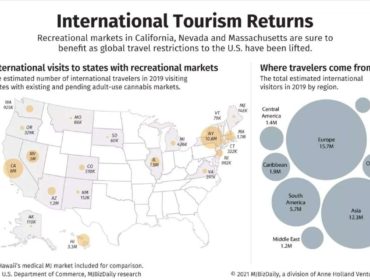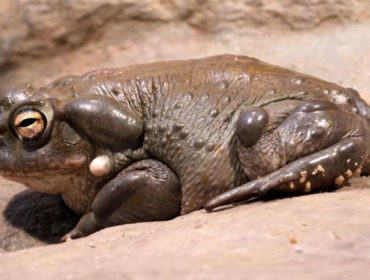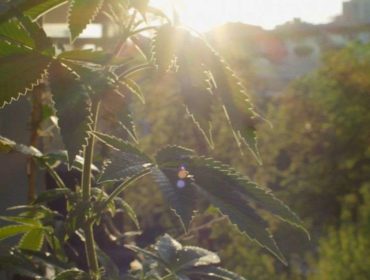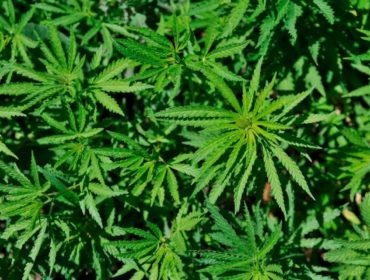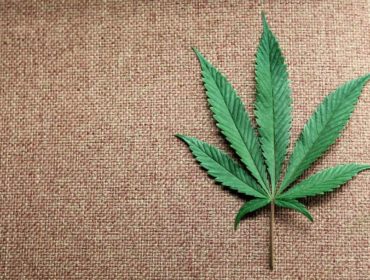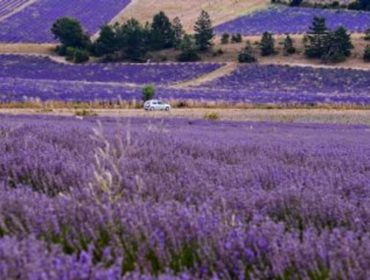Federal protections for state and territorial cannabis markets don’t apply to Native American tribes.
In a high mountain valley near Taos, N.M., the 300-person Picuris Pueblo tribe can farm whatever they want — except for one lucrative crop that is legal to grow everywhere else in the state: marijuana.
The Picuris are a poor tribe in the nation’s third-poorest state: The average household income in New Mexico is just under $50,000, and 68 percent of the tribe’s households are below that line. The main industries of the Picuris are farming and bison ranching.
A vibrant marijuana program could be an economic boon for the tribe.
It’s worked for others. The federal government has tacitly allowed states to legalize, regulate and tax medical and recreational cannabis programs since the late 1990s. But a lack of federal guidance for tribal marijuana programs has thwarted the Picuris’ plans to get a piece of New Mexico’s $200 million-plus marijuana market.
In November 2017, Bureau of Indian Affairs drug officers entered Picuris land and pulled up the approximately 30 medical marijuana plants the tribe was growing, according to Picuris Gov. Craig Quanchello. At present day prices, that marijuana flower would be worth at least $100,000. Then in December 2021, three BIA officers entered Picuris land again — according to a letter from the tribe detailing the raid — pulling up nine medical plants grown at the home of a medical card owner. The BIA and Department of Justice declined to comment for this story.
“It’s like living with a rattlesnake,” said Quanchello. “You don’t know when they’re gonna bite, but they’re gonna bite.”
In the latest attempt to use their land to improve their fortunes, the Picuris — and many other tribes around the country — have fallen into the chasm between federal and state drug laws.
The problems facing the Picuris are specific to their tribe and the state they live in — but also indicative of the problems many tribes around the country face when trying to enter the booming marijuana industry. Medical or recreational marijuana sales have now been legalized in 37 states, with revenues topping $20 billion last year.
It’s just the newest chapter of an old story: the federal government making it hard for tribes to overcome endemic poverty.
The U.S. government has a long, ugly history of passing laws that keep Native Americans poor, going back to the removal of tribes from some of the nation’s choicest pieces of land. Many tribes are still denied the ability to rent or lease the land they now live on, and the federal government gave states the ability to siphon off a percentage of tribes’ tax revenue from any gaming businesses.
State and territorial medical marijuana markets have been protected by Congress for years. But Native American tribes were never included in those protections. In fact, some tribes gave up part of their sovereignty to states in order to protect their cannabis markets from federal intervention.
“I was sort of shocked to be truthful,” said Rep. Dave Joyce (R-Ohio), the ranking member of the House Appropriations Committee’s Subcommittee on the Interior, which oversees funding for the BIA. Joyce plans to introduce federal legislation to protect tribes from such intervention in the future. “It just boggles the mind. … Not only is that not right, but it is discriminatory, and it needs to stop.”
Native American advocates are also calling for reinstatement of Obama-era guidance protecting tribal cannabis programs that was rescinded by the Trump administration. Sen. Martin Heinrich (D-N.M.) and eight other Democratic senators sent a letter to the Department of Justice last week calling for reinstating such protections.
The letter, however, is another example of the federal government’s clumsy approach to Native American policy: It was not addressed to the agency with primary control over tribes.
Falling Through The Policy Cracks
In December 2014, Congress passed the first federal protections for state-regulated marijuana programs. The amendment prohibited the Department of Justice from using federal funding to interfere in state medical marijuana markets. Eventually, it was expanded to protect territories and the District of Columbia.
Source: https://www.politico.com/news/2022/04/05/tribes-marijuana-laws-00022899


